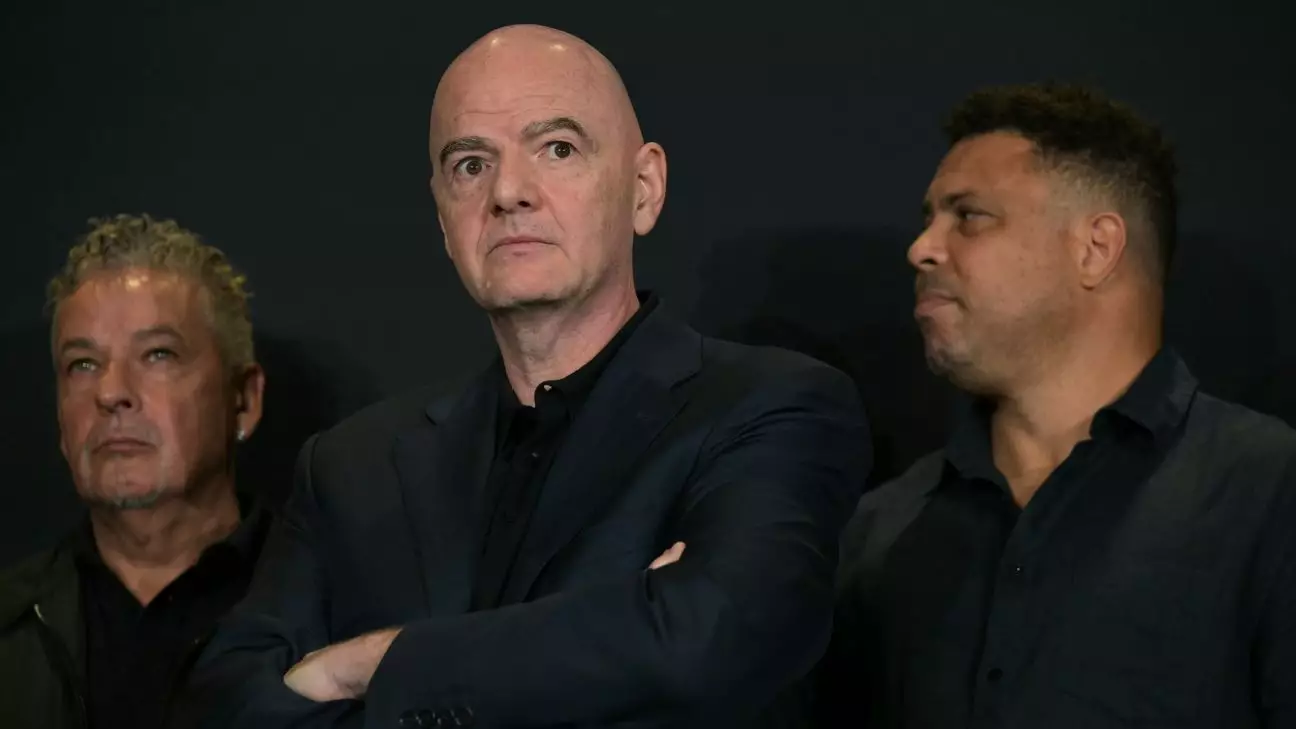In recent developments, the popular narrative surrounding FIFA’s efforts to address player welfare is marred by a glaring omission: the exclusion of FIFPRO, the global players’ union. Despite representing over 66,000 athletes worldwide, FIFPRO was notably absent from a pivotal summit with FIFA president Gianni Infantino in New York. While FIFA proclaimed that consensus had been reached to improve player rest and welfare, this narrative conveniently sidesteps the critical voices that actually understand players’ needs best. The silence of FIFPRO signals a troubling disconnect between the governing body and the very individuals it claims to serve. When players’ unions are sidelined, the legitimacy of such commitments is fundamentally undermined; policies become empty gestures, lacking enforceability or genuine stakeholder buy-in.
Questionable Legitimacy of FIFA’s Announcements
FIFA’s public statement claims victory over “key issues concerning player welfare,” citing agreement on mandatory rest periods. However, insiders reveal a different reality: the agreements are not only unilaterally devised but also lack the backing of most key stakeholder organizations. Crucially, agreements reached in such closed-door forums often lack legal clarity or enforceability, raising genuine doubts about their efficacy. Senior player representatives have voiced skepticism, describing FIFA’s claims as “deeply flawed,” emphasizing that the announced consensus is more of a PR move than a legally binding resolution. It is imperative to scrutinize whether FIFA’s proclamations genuinely reflect grassroots realities or are merely strategic positioning to portray an image of reform.
The Power Dynamics and Political Intrigue Behind the Scenes
Adding complexity to this landscape is the fact that the players’ representatives present at the meeting were hardly the most legitimate voices within the football community. Several attendees included national union officials who had been expelled from FIFPRO or ousted through internal democratic processes. This raises the question: who truly holds power in football governance? FIFA’s decision to exclude FIFPRO can be perceived as an intentional attempt to sideline independent player advocacy and impose unilateral decisions. The legal actions initiated by FIFPRO Europe and European leagues against FIFA’s expansion of the match calendar further expose the underlying tensions. These actions suggest that FIFA’s push for new competitions, like the 32-team Club World Cup in the U.S., is driven more by commercial interests than player welfare considerations.
FIFA’s Authority Under Scrutiny
Ultimately, FIFA’s approach seems to reflect an authoritarian governing style that privileges top-down decision-making over inclusive dialogue. The absence of lawful, binding agreements coupled with FIFA’s dismissive attitude towards broader consultation threaten the integrity of reforms purportedly aimed at protecting players. The refusal to properly involve FIFPRO and other stakeholders signals a broader pattern of marginalizing voices that challenge FIFA’s expanding authority. As legal challenges loom and internal dissent emerges, it becomes increasingly clear that FIFA’s standing as a truly democratic organization is under serious threat. For meaningful progress, real engagement, transparency, and accountability are essential. Anything less risks hollow reforms that do little to mitigate the pressures faced by players in an increasingly commercialized sport.

